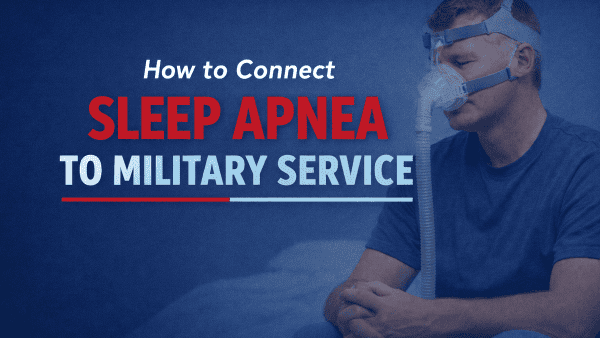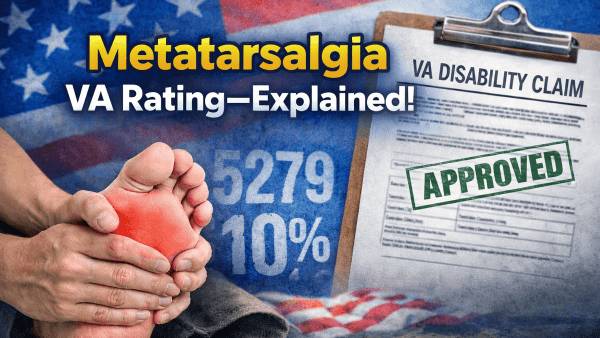Looking for Expert-Level VA Claim Answers?📱Call Us Now! 737-295-2226
Veterans who have been denied VA disability by the Board of Veterans’ Appeals often want to know their options to fight back in court.
This is where the CAVC enters the picture.
However, since there is some confusion surrounding the CAVC, this guide will cover the basics and answer frequently asked questions about the CAVC to help determine when these types of appeals come into play.
Let’s take a look.
Table of Contents

What is the CAVC?
The Court of Appeals for Veterans Claims, or CAVC, determines whether the Board of Veterans’ Appeals (BVA) had the law and facts correct when it denied your claim. So, the CAVC doesn’t decide your claim but determines if the BVA made a mistake in your denial.
The CAVC operates independently and is not part of the VA, nor is it under the VA’s jurisdiction. Before the CAVC was created, the final word lay in the hands of the VA, and their decision was final.
If you received a denied claim, you wouldn’t receive benefits unless you wanted to start the process of filing a claim again. However, in 1988, President Ronald Reagan signed the Veterans’ Judicial Review Act into law, establishing the U.S. Court of Appeals for Veterans Claims.
You must have a final decision from the BVA before appealing to the CAVC. If you are still determining the status of your claim with the VA, you can call the Board status line at (800) 827-1000.
PRO TIP: If your claim is denied, consider ALL your options before moving forward. Higher Level Reviews (HLRs) or Supplemental Claims may be your best first option.
VA Claim Denied? 3 Options to Consider if Your VA Claim is Denied

What Does CAVC Stand For?
CAVC stands for the Court of Appeals for Veterans Claims, a national court record established under Article 1 of the US Constitution.
The Court has exclusive jurisdiction to provide judicial review of final decisions by the Board of Veterans’ Appeals, an entity within the VA.
What is the CAVC Process?
If you disagree with the Board of Veterans’ Appeals decision, you have 120 days to appeal to the CAVC. Unlike the VA claim process, the CAVC doesn’t assist veterans in obtaining necessary documents and medical evidence.
Important to know: The 120 days to appeal begins from the date stamped on the front of the BVA’s decision mailed to you, not when you received it.
4 Steps to Filing a Claim with the CAVC
- You must file a written Notice of Appeal (NOA) that includes basic information, including name, address, phone number, email address, VA claims file number, and Date of Board decision being appealed.
- The fee for an NOA is $50, but if you can’t pay it, you must fill out the Declaration of Financial Hardship form and email it to [email protected] if you are a self-represented appellant. (Don’t submit both a Declaration of Financial Hardship form and a filing fee.)
- You can pay the NOA $50 fee electronically after you’ve been assigned a case number at Pay.gov or mail the fee to:
Clerk of the Court
United States Court of Appeals for Veterans Claims
625 Indiana Avenue NW, Suite 900
Washington, DC 20004-2950
- You can mail, fax, or email your NOA and Financial Hardship forms to the following:
Mail:
Clerk of the Court
United States Court of Appeals for Veterans Claims
625 Indiana Avenue NW, Suite 900
Washington, DC 20004-2950
Fax:
(202) 501-5848
Email:
Email for self-represented appellants: [email protected]
Email for represented appellants: [email protected]
What is a CAVC Docket?
After you’ve filed a Notice of Appeal, your case is placed on the CAVC docket, which begins the appellate process.
Once your case has been docketed, the claim officially becomes a court case, and all parties receive a Notice of Docketing by the CAVC.
You can use the CAVC docket search using your docket number (not your VA claims file number).
How Long Does a CAVC Remand Take?
A remand is generally a favorable decision by the CAVC, and the case will return to the Board of Veterans’ Appeals for re-adjudication. The time it takes to receive a CAVC remand can vary from 8 months to 3 years, with an average of 8-10 months.
Deserve a Higher VA Rating?
Book a no-obligation VA Claim Discovery Call with an experienced team member. We’ll review your situation, spot what the VA may have missed, and help you map out a strategy to unlock the VA disability rating and tax-free compensation you’ve earned for your service. Click the red button below to book your call.
NEED MORE ASSISTANCE?
Most veterans are underrated for their disabilities and, therefore, not getting their due compensation. At VA Claims Insider, we help you understand and take control of the claims process, so you can get the rating and compensation you’re owed by law.
If you’ve filed your VA disability claim and have been denied or have received a low rating—or you’re unsure how to get started—reach out to us! Take advantage of a VA Claim Discovery Call. Learn what you’ve been missing—so you can FINALLY get the VA disability rating and monthly compensation you deserve!



